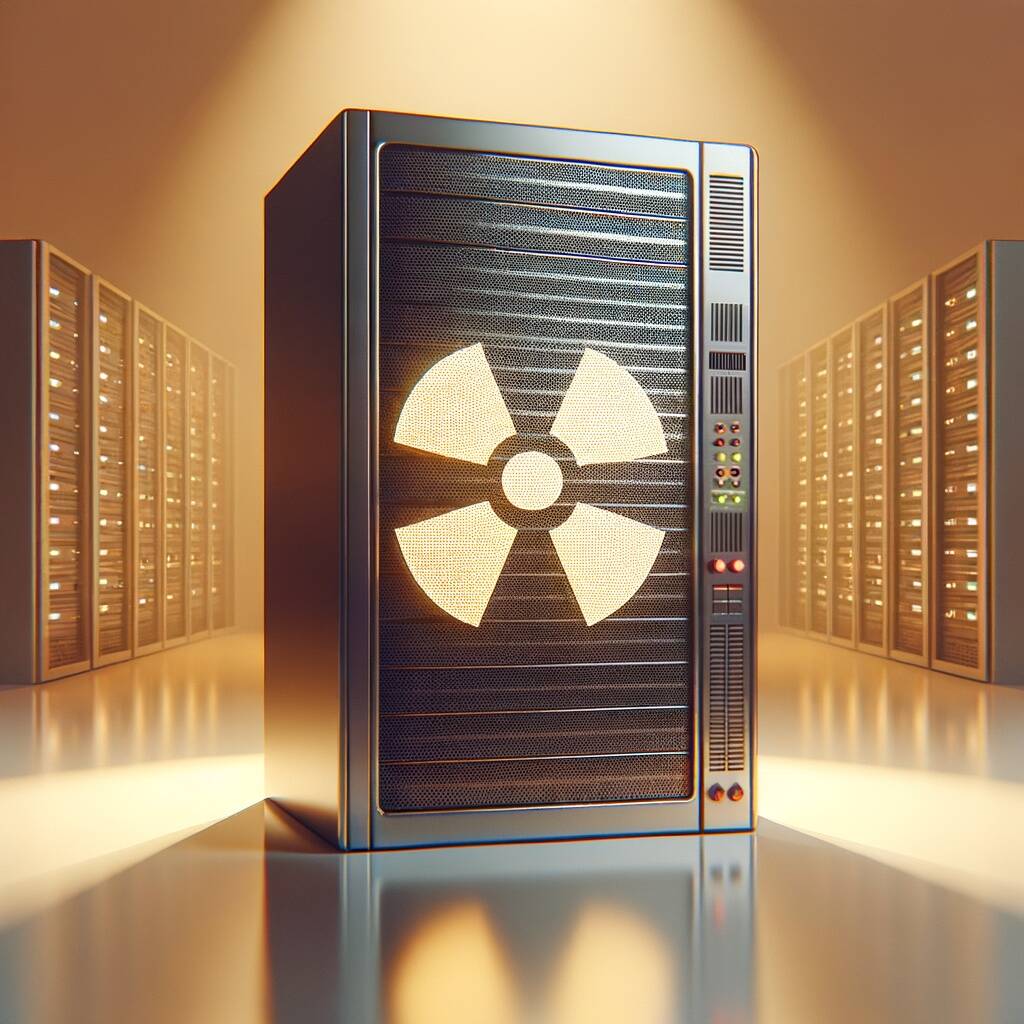Microsoft Hires Energy Mavericks In Quest For Nuclear-powered Datacenters

Microsoft has hired a director of nuclear technologies to oversee a program to develop small-scale atomic reactors to power datacenters as an alternative to fossil fuels.
Archana "Archie" Manoharan has been tapped for the role. She's spent more than 15 years in the energy industry and was former director of nuclear strategy & programs at Ultra Safe Nuclear Corporation (USNC), a company developing Micro Modular Reactor (MMR) technologies.
Manoharan posted on her LinkedIn page that she was delighted to have started at Microsoft as the head honcho of nuclear technologies.
"Microsoft is proud to be part of the global effort to decarbonize the electricity sector and empower every person and every organization on the planet to achieve more. I am eager to contribute to this vision!" she said.
At USNC, Manoharan oversaw long range nuclear strategy as well as key stakeholder partnerships for the company's MMR deployments. However, she was also responsible for USNC's Department of Energy (DOE) loan program application efforts, which will likely have been valuable experience as far as Microsoft was concerned.
The move follows Microsoft's appointment of Erin Henderson last week as director of nuclear development acceleration. Another energy industry veteran, she joins Microsoft from Tennessee Valley Authority electricity company where her role was GM of transmission projects.
As we reported last year, Microsoft was seeking senior staff to bolster its nuclear ambitions, with one job ad posted for a principal program manager for Nuclear Technology to "lead project initiatives for all aspects of energy infrastructure". This includes liaising with engineering and design teams to ensure "technical feasibility and optimal integration of SMR and microreactor systems."
Microsoft, along with others involved in the datacenter industry, is looking into nuclear power for two reasons: The need to move away from fossil fuels to cut carbon dioxide emissions, plus the expanding energy consumption of datacenters as more powerful hardware is called for to meet the demands of AI processing.
- Blockchain biz goes nuclear: Standard Power wants to use NuScale reactors for DCs
- Why can't datacenter operators stop thinking about atomic power?
- Microsoft hiring a nuclear power program manager, because AI needs lots of 'leccy
- Virginia industrial park wants to power DCs with mini nuclear reactors, clean hydrogen
Redmond's interest in MMRs or SMRs (small modular reactors) centers on the fact they are small (up to 300 MW in output) and modular, and can theoretically be prefabricated elsewhere then shipped to the datacenter site and installed, which should make them more affordable to build than the large-scale fission reactors that power cities or entire regions.
However, this is a long-term project, as The Register explained last year. One analyst told us at the time that "the most optimistic deployment of an SMR here in the United States is by 2030," and deployment to power datacenters is likely to be between 10 and 15 years away.
Microsoft is clearly playing a long game. Last year, it signed a power purchase agreement with Helion Energy, a company based in Washington state with the ambitious aim of building the world's first operational nuclear fusion power plant.
This is optimistically forecast by the company to start producing electricity by 2028, but skeptics have poured cold water on this, pointing out it would be a short time frame to go from blueprint to grid power with an established design of nuclear fission power plant, let alone an entirely unproven tech. ®
From Chip War To Cloud War: The Next Frontier In Global Tech Competition
The global chip war, characterized by intense competition among nations and corporations for supremacy in semiconductor ... Read more
The High Stakes Of Tech Regulation: Security Risks And Market Dynamics
The influence of tech giants in the global economy continues to grow, raising crucial questions about how to balance sec... Read more
The Tyranny Of Instagram Interiors: Why It's Time To Break Free From Algorithm-Driven Aesthetics
Instagram has become a dominant force in shaping interior design trends, offering a seemingly endless stream of inspirat... Read more
The Data Crunch In AI: Strategies For Sustainability
Exploring solutions to the imminent exhaustion of internet data for AI training.As the artificial intelligence (AI) indu... Read more
Google Abandons Four-Year Effort To Remove Cookies From Chrome Browser
After four years of dedicated effort, Google has decided to abandon its plan to remove third-party cookies from its Chro... Read more
LinkedIn Embraces AI And Gamification To Drive User Engagement And Revenue
In an effort to tackle slowing revenue growth and enhance user engagement, LinkedIn is turning to artificial intelligenc... Read more

